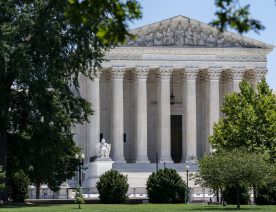
July 25, 2025
The public’s confidence in the Supreme Court appears to be on the rise three years after it plummeted in the wake of the 2022 Dobbs v. Jackson Women’s Health Organization ruling. Sixty-seven percent of adults now say they have at least some confidence in the Supreme Court, up from 56% in an AP-NORC poll conducted just after the ruling.
Still, the number of people who think the Supreme Court has too much power is also on the rise. Thirty-eight percent think the Court has too much power, up from 29% in April.
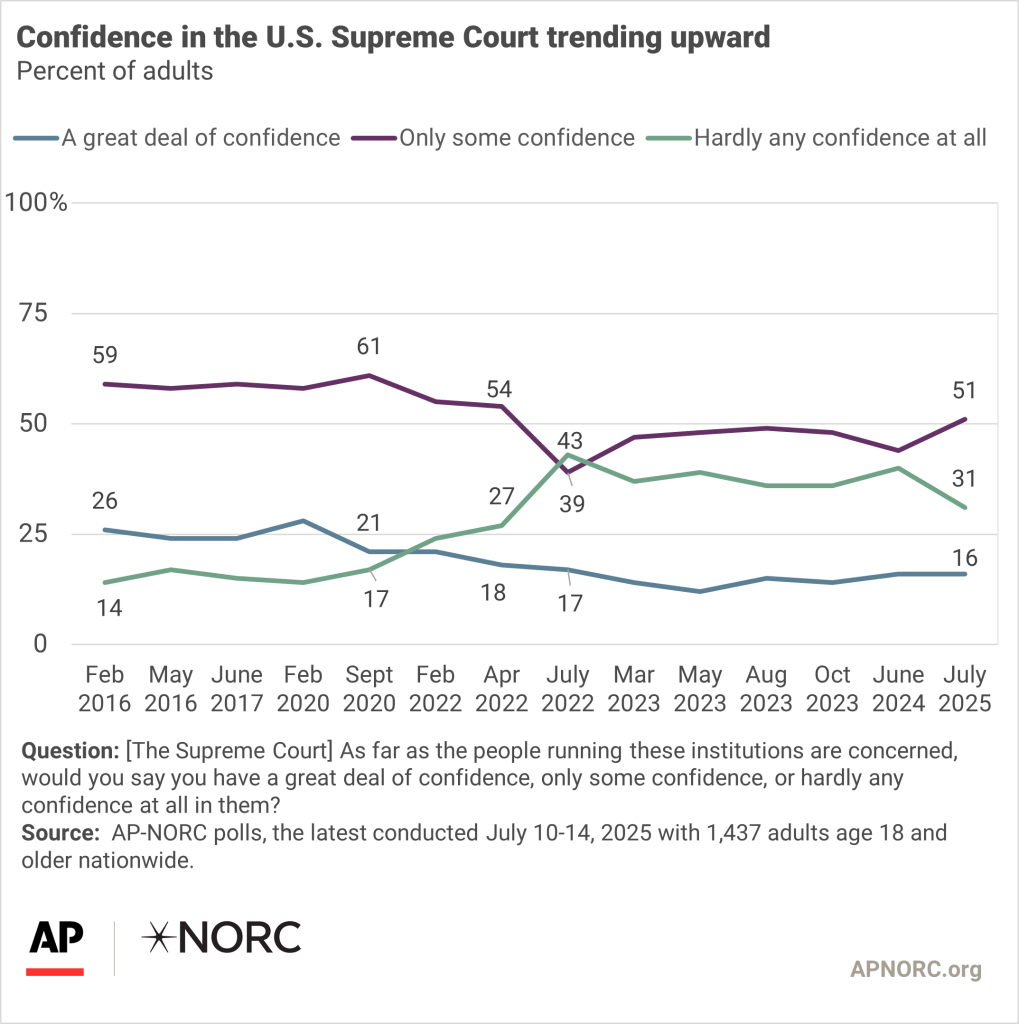
Over the past three years, confidence in the Supreme Court has increased among Republicans, Democrats, and independents. In 2022, 35% of Democrats and 82% of Republicans said they had at least some confidence in the Court. That is now up to 43% and 90%, respectively. Despite this upward trend, 56% of Democrats say they have hardly any confidence.
Notably, Democratic confidence has fluctuated more sharply in recent years. In February 2020, 79% of Democrats expressed at least some confidence—nearly double the 2022 figure—while Republican confidence was already high at 95%, near where it stands today.
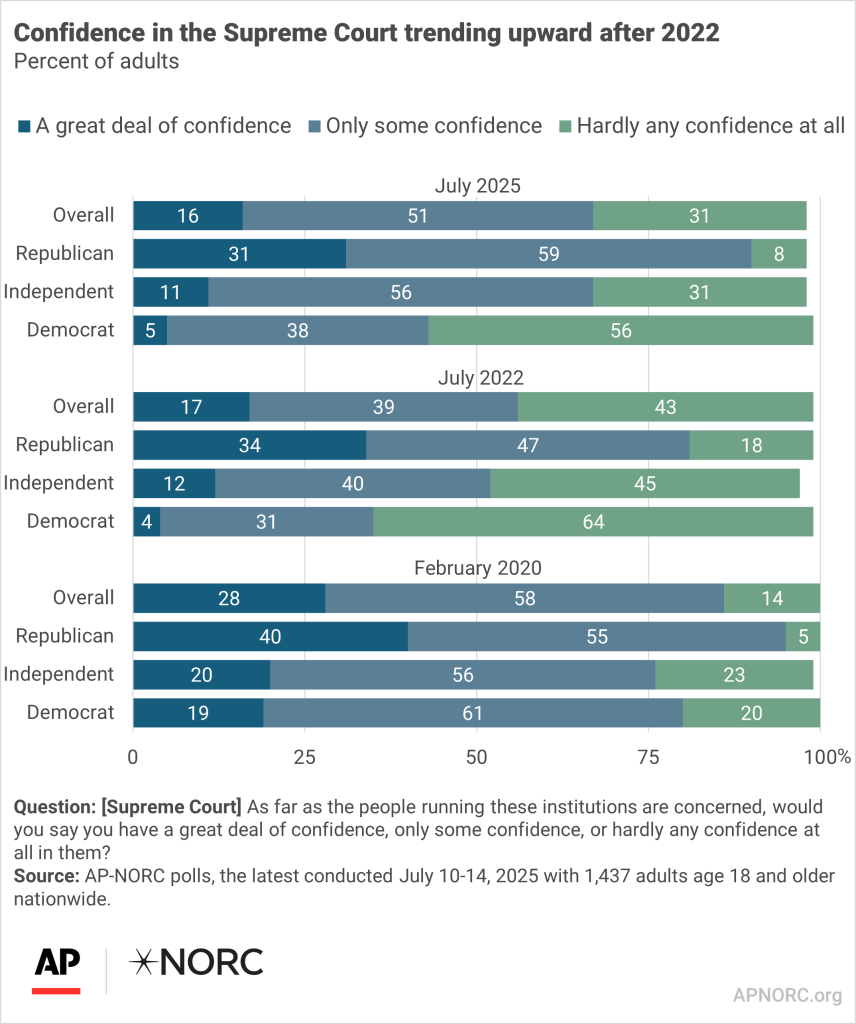
Compared with other branches of government, the Supreme Court garners the most public confidence (67%), followed by the Justice Department (64%), the executive branch (57%), and Congress (55%). Though fewer than 2 in 10 adults have a great deal of trust in any of the branches. Confidence tends to be higher among Republicans and lower among Democrats.
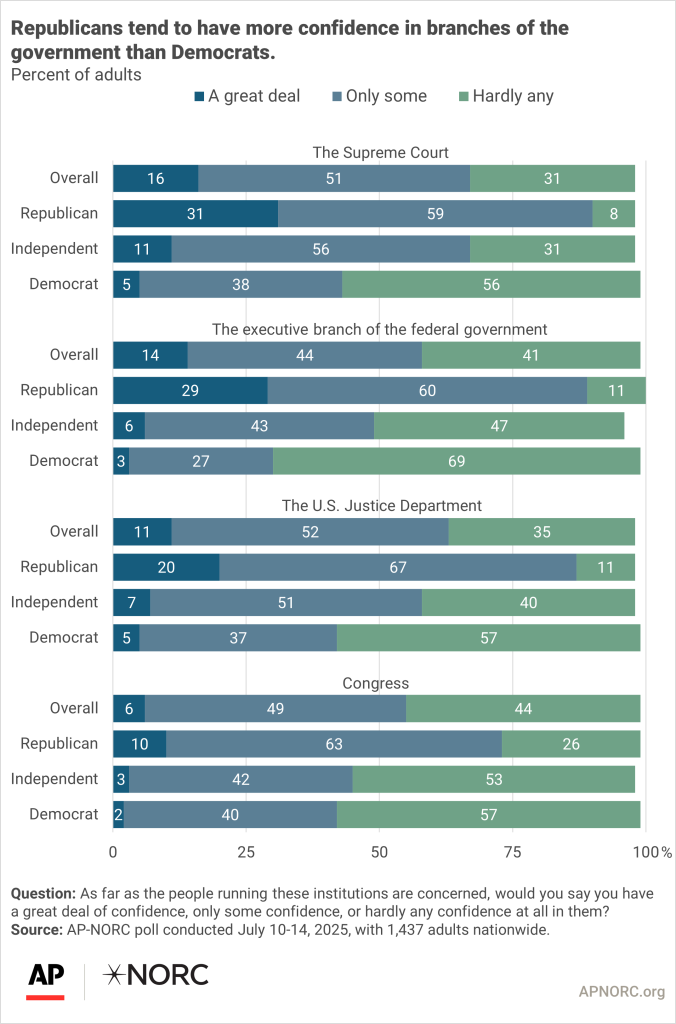
Nearly four in ten adults believe the Supreme Court holds too much power in how the U.S. government operates today—an identical share says the same about federal judges. Concerns that the Supreme Court has too much power are down from 44% in March 2024. Opinions vary sharply by party: 56% of Democrats now say the Court has too much power, up from 34% in April, while just 20% of Republicans agree which is about the same since April. Perceptions of federal judges differ. Republicans are more likely than Democrats to say federal judges are too powerful (50% vs. 24%) suggesting broader conservative skepticism toward the lower courts.
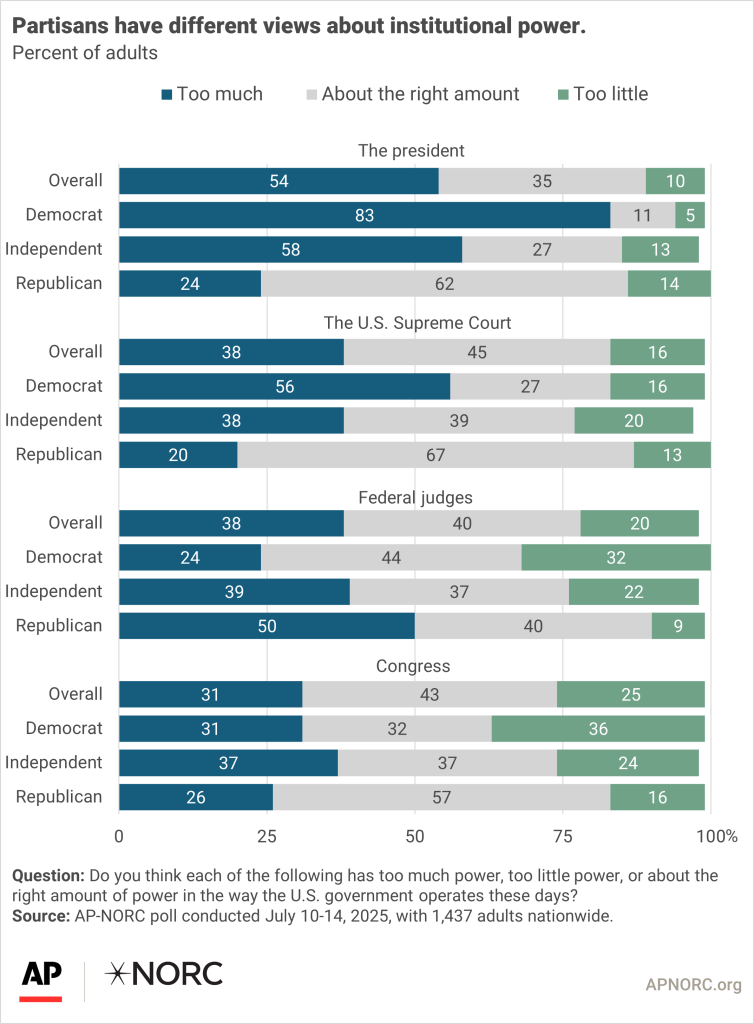
The nationwide poll was conducted July 10-14, 2025 using the AmeriSpeak® Panel, the probability-based panel of NORC at the University of Chicago. Online and telephone interviews using landlines and cell phones were conducted with 1,437 adults. The overall margin of sampling error is +/- 3.6 percentage points. Respondents age 18-29 were sampled at a higher rate than their proportion of the population for reasons of analysis. The overall margin of sampling error for the 386 interviews completed with respondents age 18-29 is +/- 6.6 percentage points.
- Suggested Citation: AP-NORC Center for Public Affairs Research. “Confidence in the Supreme Court is increasing, but so are concerns over it’s power.” (July 2025). https://apnorc.org/projects/confidence-in-the-supreme-court-is-increasing-but-so-are-concerns-over-its-power/







